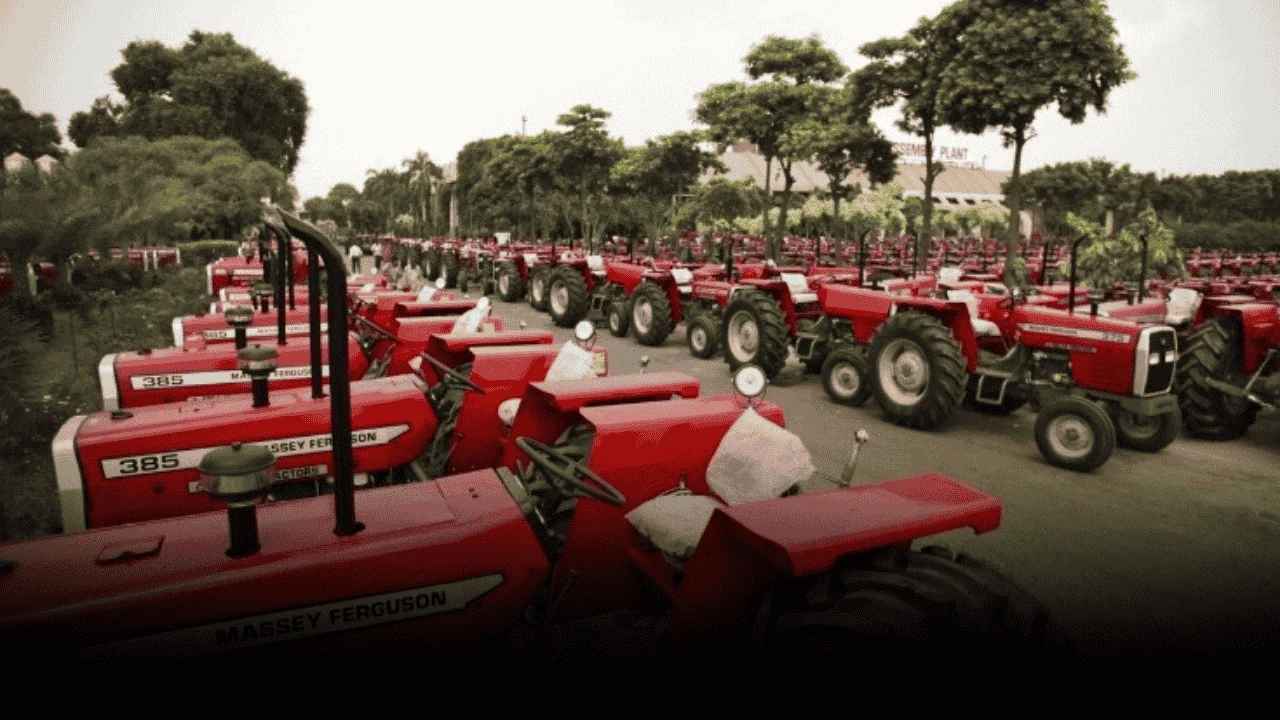By Azeem Ahmed
Pakistan’s tractor manufacturing industry is facing a tough time, with production dropping sharply this year.
In the first nine months of the fiscal year 2024-25, only 23,814 tractors were made, a significant drop from 36,385 units during the same period last year.
This marks a 34.6% decline, according to reports.
The Rise and Fall of Tractor Production
Tractor production in Pakistan has experienced many ups and downs over the years. In 2016-17, production reached its peak, with over 53,499 units produced.
The following year, it stayed strong at 52,551 units. But by 2018-19, production dropped to 37,457 units, and continued to fall to 32,451 units in 2019-20.
A small rebound happened in 2020-21 with 36,900 tractors made, but the big jump came in 2021-22, when production surged to 58,880 units—the highest in the last decade.
However, 2024-25 has seen production slump to just 23,814 units, the lowest in ten years, signaling serious challenges ahead for the industry.
The Tractor Shortage and Its Impact on Farming
The limited number of tractors available for farmers is a major obstacle to improving agricultural productivity in Pakistan. Tractors are essential for modern farming, and Pakistan’s tractor industry has been crucial in meeting this need.
According to the Pakistan Economic Survey 2024-25, more than 714,000 tractors are currently in use across the country.
The 2023-24 fiscal year saw a small increase in production, reaching 36,385 units compared to 31,651 in the previous year.
This was due to the recovery efforts following the 2022 floods, which damaged vast areas of agricultural land. But the drop in production during 2022-23 and 2024-25 shows that the industry still faces significant hurdles.
Government Efforts to Revive the Industry
The government has been trying to boost farm mechanization by offering incentives. In 2022-23, Pakistan allowed the import of tractors up to five years old at reduced duties to help address the shortage.
The government also lowered the Completely Knocked Down (CKD) duty for new tractors from 35% to 15% and removed the General Sales Tax on tractors.
Additionally, customs duties on agricultural machinery were exempted to encourage the use of modern farming equipment.
The Punjab government has also launched a program to help small farmers by providing around 30,000 modern tractors at subsidized rates through a lottery system.
The Importance of Tractors for Pakistan’s Agriculture
Agriculture is the backbone of Pakistan’s economy, and tractors are key to improving farming productivity.
Experts believe that having a strong and reliable tractor manufacturing sector is essential for the country’s agricultural growth.
They stress that ongoing government support, easier financing for farmers, and incentives for local production are all crucial for the future of the industry.
Experts also warn that stabilizing the tractor industry is essential for improving farm productivity and ensuring food security.
More than 90% of Pakistan’s farmers are smallholders who still face challenges accessing modern farm machinery.
What’s Next for Pakistan’s Tractor Industry?
As Pakistan continues to modernize its agricultural sector, the future of the tractor industry will be critical. Ensuring that farmers have access to modern equipment is vital for improving productivity and supporting the country’s rural economy.
If the industry can overcome its current challenges, it could become a strong pillar of Pakistan’s economic growth in the years to come.
Author Profile






